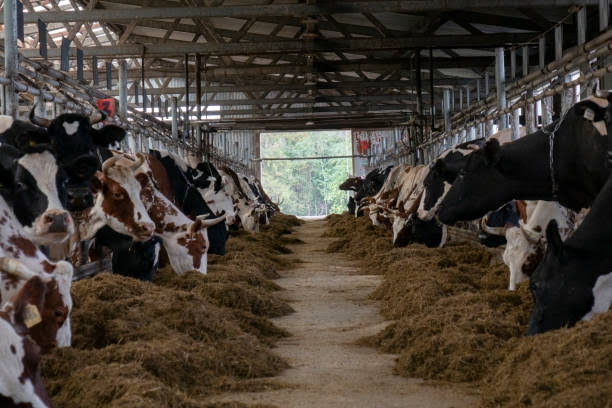
Animal husbandry refers to the agricultural practice of breeding, raising, and caring for animals that are used for various purposes, including food production, fiber production, labor, and companionship. It involves the management and manipulation of livestock and other domesticated animals to ensure their well-being, productivity, and sustainability.

Animal husbandry encompasses a wide range of activities, depending on the specific goals and objectives of the animal production system. Some common aspects of animal husbandry include:
- Breeding and genetics: Selecting and mating animals to improve desirable traits, such as increased meat or milk production, disease resistance, or specific physical characteristics.
- Feeding and nutrition: Providing animals with a balanced diet that meets their nutritional needs, which may include grazing on natural pasture, feeding on cultivated crops, or providing formulated feeds.
- Housing and shelter: Providing appropriate housing or shelter for animals to protect them from adverse weather conditions, predators, and diseases. This can range from simple structures to more sophisticated barns or pens.
- Health care and disease management: Monitoring animal health, preventing diseases through vaccinations and hygiene practices, and providing veterinary care when needed.
- Reproduction and offspring management: Managing the reproductive cycles of animals, including mating, pregnancy, and birthing, as well as caring for newborn animals.
- Herd management and record-keeping: Monitoring and tracking individual animals within a herd or flock, maintaining records of births, deaths, weights, and other relevant data to assist in decision-making and genetic improvement.
- Animal welfare: Ensuring the well-being and humane treatment of animals, including providing appropriate living conditions, minimizing stress, and avoiding unnecessary suffering.
Animal husbandry practices can vary widely depending on the specific animal species involved, such as cattle, poultry, sheep, pigs, goats, horses, or aquaculture species. Modern animal husbandry has evolved significantly with advancements in technology, genetics, and scientific understanding, aiming to optimize productivity, sustainability, and animal welfare while minimizing environmental impacts.

VISIT OUR OFFICE : 5TH FLOOR LE-DESIRE COMPLEX, CIRCULAR ROAD ,LALPUR, RANCHI, JHARKHAND
VISIT OUR WEBSITE FOR MORE INFOMATION HTTPS://ETERNALCAREERCLASSES.COM
FOR TEST SERISE, PREVIOUS YEAR QUESTION PAPER OF NEET AND DPP FROM ALL CHAPTERS ARE AVAILABLE ON ETERNAL RANCHI APP.DIRECT DOWNLOAD FROM QR CODE GIVEN BELOW
